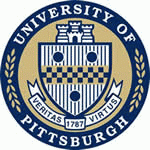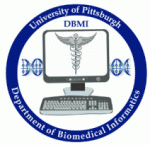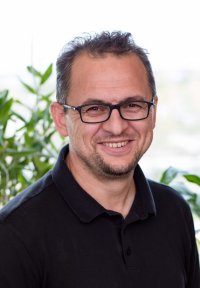 Ferhat Ay, PhD
Ferhat Ay, PhD
La Jolla Institute for Immunology
Ferhat Ay is the Institute Leadership Associate Professor of Computational Biology at the La Jolla Institute for Immunology (LJI) with adjunct appointments at the UC San Diego School of Medicine, Moores Cancer Center, Institute for Genomic Medicine and Bioinformatics and Systems Biology PhD program. Prior to LJI, he was a Research Assistant Professor at Northwestern University (2015) and a CRA Computing Innovation Fellow in William Noble's lab in the Department of Genome Sciences at the University of Washington (2011-2014). Ferhat completed his Ph.D. in Computer Science at the University of Florida (2007-2011) and his B.S. degrees in Computer Engineering and Mathematics both from Middle East Technical University (METU), Turkey, in 2007. His primary research areas are bioinformatics, computational biology, epigenomics, and regulatory genomics. Ferhat and his lab developed computational methods for studying chromatin conformation capture data (Hi-C, HiChIP), including highly utilized tools such as FitHiC, FitHiChIP, Mustache, HiCNV/HiCTrans and dcHiC. He serves as an Associate Editor for PLoS Computational Biology, Journal of Computational Biology, and as an Editorial Board Member for Genome Biology, and in several different organizational roles for ISCB conferences, including ISMB, RECOMB and RSGDREAM.
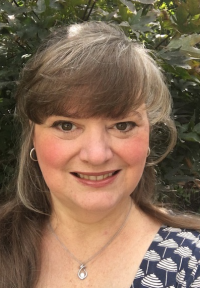 Elise Blaese, MS, MBA
Elise Blaese, MS, MBA
IBM
Elise Blaese is a Senior Project Manager for IBM Research. She supports the work of the IBM Research Healthcare and Life sciences team. She is also a DREAM Director, having worked on outreach, marketing, logistics and management of DREAM Challenges and the Annual DREAM conference since 2011. Elise joined IBM Research in 2008 where she works to find research opportunities for IBM researchers and our partner universities with the NIH. Before joining Research Elise work in IBM’s internal healthcare startups in solutions development and marketing for five years. Prior to IBM, Elise worked for NASA for 10 years in the Space Life Sciences research program where she was a project manager for the Life Sciences Data Archive (LSDA). Elise also worked in payload Mission Control for four Spacelab missions in the early 90’s.
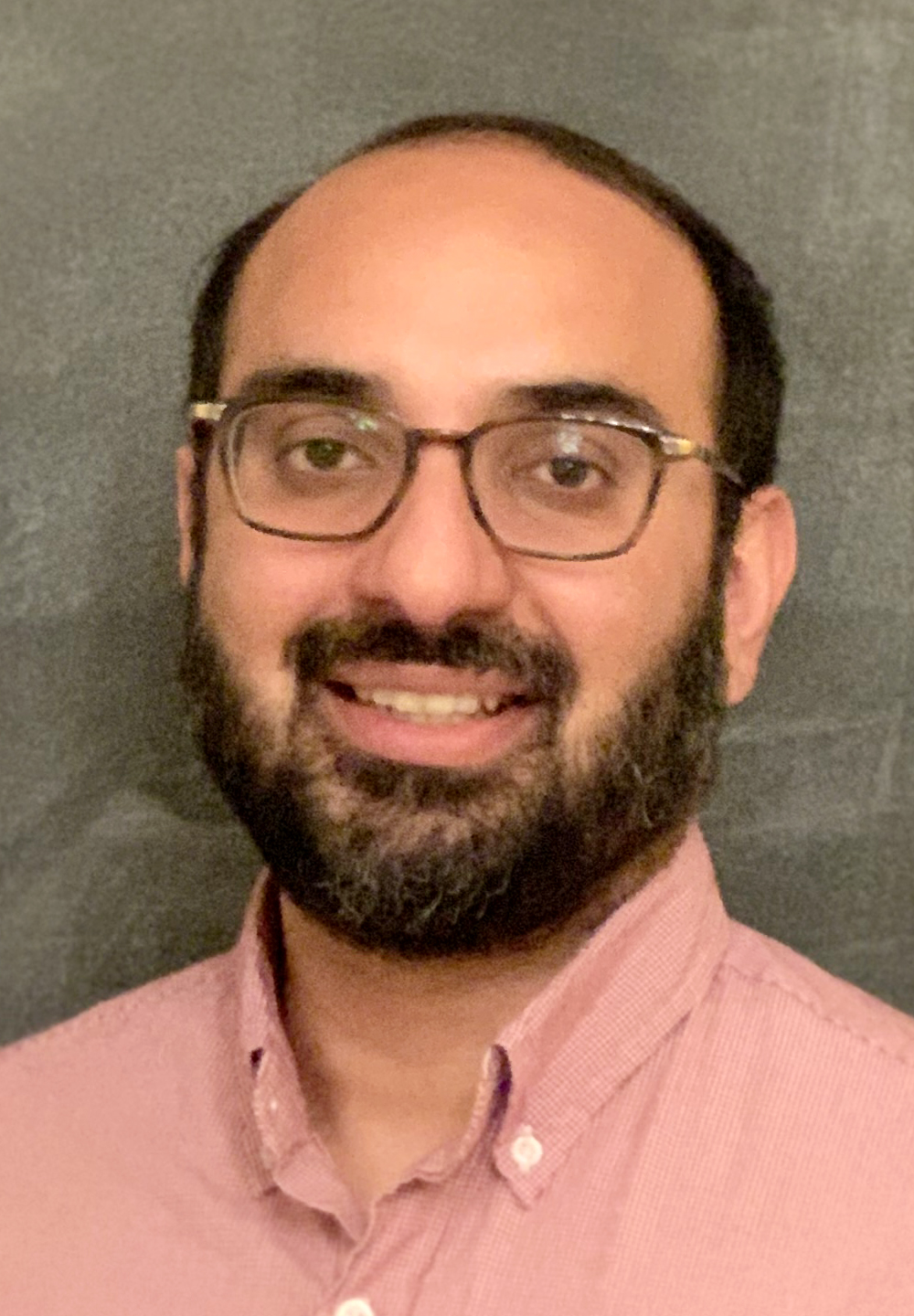 Aly Azeem Khan, PhD
Aly Azeem Khan, PhD
University of Chicago
Aly A. Khan is an Assistant Professor at the University of Chicago, with appointments in the Departments of Pathology, Family Medicine, and the College. He develops computational methods to uncover clinically relevant insights about the immune system, translating these into improved diagnostic and therapeutic opportunities for human health. Previously, he was a research faculty member at the Toyota Technological Institute in Chicago, where he established a basic science research program in computational immunology. In addition to his academic research, he has advanced translational research at Merck, Genentech, Tempus Labs, and currently 23andMe. Dr. Khan earned his Ph.D. in Computational Biology jointly from Cornell University and the Memorial Sloan Kettering Cancer Center. His contributions to computational immunology have been recognized with several honors, including the NIH DP2 NIAID New Innovator Award.
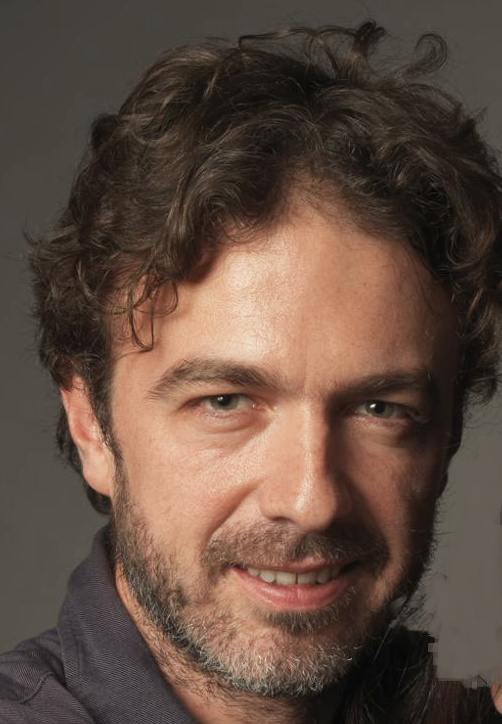 Pablo Meyer, PhD
Pablo Meyer, PhD
IBM
Pablo Meyer is Manager of the Biomedical Analytics and Modeling group at IBM research, Director of DREAM challenges and as such has been working on developing models and applying AI to biological/biomedical problems, Systems Biology, Olfaction and Disease.
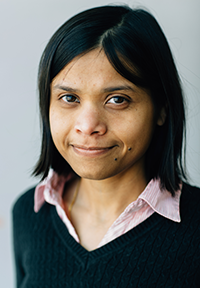 Sushmita Roy, PhD
Sushmita Roy, PhD
University of Wisconsin-Madison
Sushmita Roy is a Professor at the Biostatistics and Medical Informatics Department and a faculty at the Wisconsin Institute for Discovery, University of Wisconsin, Madison. Her research lies at the intersection of machine learning and regulatory genomics. Her group develops and applies computational methods for identifying regulatory networks that exist in living cells and examines their dynamics across different biological contexts. She works closely with experimentalists who study a variety of biological processes ranging from infectious disease, cell fate specification, host microbe interactions, evolution of tissue-specific gene expression that all have a shared goal to understand the underlying regulatory network. Dr. Roy is a recipient of an Alfred P. Sloan Foundation Fellowship, an NSF CAREER award and a James McDonnell foundation scholar award.
Steering Committee
- Bonnie Berger, MIT
- Elise Blaise, IBM
- Richard Bonneau, NYU
- Ashleigh Donnellan, Memorial Sloan Kettering Cancer Center
- Jason Ernst, University of California, Los Angeles
- Bel Hanson, ISCB
- Anshul Kundaje, Stanford University
- Manolis Kellis, MIT
- Diane Kovats, ISCB
- Christina Leslie, MSKCC
- Jian Ma, Carnegie Mellon University
- Pablo Meyer, IBM
- Sushmita Roy, University of Wisconsin-Madison
- Saurabh Sinha, University of Illinois at Urbana-Champaign
- Lonnie Welch, Ohio University
Organizing Chairs
- Ferhat Ay, La Jolla Institute for Immunology, RSG Program Chair
- Elise Blaise, IBM, DREAM Program Chair
- Aly Azeem Khan, University of Chicago, RSG Program Chair
- Pablo Meyer, IBM, DREAM Program Chair
- Sushmita Roy, University of Wisconsin-Madison, RSG Program Chair
Program Committee
Coming Soon
Additional Support
- Bel Hanson, ISCB Director, Operations and Programs
- Diane Kovats, ISCB, Chief Executive Officer
- Justine Morris, Coordinator, Operations and Programs
- Seth Munholland, ISCB, Lead Technologist
- Maddie Thomas, ISCB, Community Engagement Liaison
- Mallory Wiper, ISCB, Communications Specialist
Venue
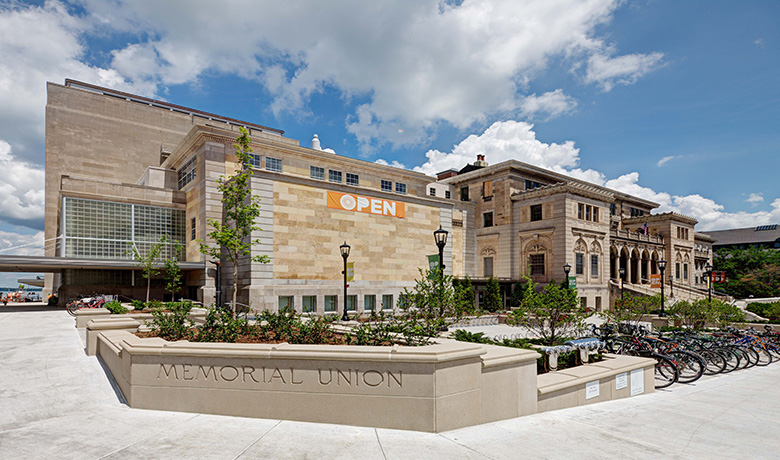 Conference will take place in the Memorial Union at University of WIsconsin - Madison
Conference will take place in the Memorial Union at University of WIsconsin - Madison
The address is: 800 Langdon Street, Madison, WI 53703
Accommodation
Madison Concourse Hotel
 With a stay at The Madison Concourse Hotel and Governor's Club, you'll be centrally located in Madison, within a 5-minute drive, 15 minute walk of the University of Wisconsin-Madison and Capitol Square. Each hotel room features Dayton Street Comfort Collection™ bedding and complimentary wireless Internet access. During your stay, enjoy our third-floor pool area with a ton of natural light, our state-of-the-art 24-hour fitness center, and an array of delicious dining options.
With a stay at The Madison Concourse Hotel and Governor's Club, you'll be centrally located in Madison, within a 5-minute drive, 15 minute walk of the University of Wisconsin-Madison and Capitol Square. Each hotel room features Dayton Street Comfort Collection™ bedding and complimentary wireless Internet access. During your stay, enjoy our third-floor pool area with a ton of natural light, our state-of-the-art 24-hour fitness center, and an array of delicious dining options.
Guests can enjoy a complimentary airport shuttle is available for service between Dane County Regional Airport and the hotel. The shuttle serves all overnight guests and runs between 4:30AM and 11PM.
From the airport: Simply call the hotel when you are ready for pick-up. The shuttle pick-up area is across the street from baggage claim Door 5. If you arrive after 11PM, taxis are available outside Door 7. Rideshare vehicles such as Uber and Lyft also pick up at the median across the street from Door 5.
From the hotel: Please make a reservation at the front desk. The shuttle runs to the airport daily on the hour and half-hour during shuttle hours.
- Room Rate: $199.00
- Reservations can now be made directly:
- with this link: RSG Dream
- by phone: 608 257 6000, ensure you mention RSGDREAM 2024
Oral & Poster Presentations
Submit a Short Talk or Poster Presentation
The RECOMB/ISCB Conference on Regulatory and Systems Genomics invites abstracts for consideration for oral presentations or participation in a poster session. Abstracts may be either original unpublished work or original work that was published or accepted for publication in a high-impact journal between January 1, 2023 and November 1, 2024. Unpublished work will be considered for either an oral or poster presentation.
Key Dates:
- Abstract Submission for Oral Presentation and Poster deadline: Friday, August 2, 2024
- Author notifications will occur on or around Friday, August 16, 2024
- Late Breaking Posters deadline*: Friday, August 30, 2024 or until capacity is reached.
*Poster portal information will be sent to all approved posters after the notification deadline. Note Late Breaking posters will have a very short turn-around as all presentations MUST be uploaded no later than September 24, 2024.
For a variety of reasons, RECOMB/ISCB strongly prefers that scientific research accepted for oral presentation be presented in-person at the conference venue. We understand that some presenters will have valid reasons to avoid in-person attendance. RECOMB/ISCB will grant remote presentation options for reasons associated with maternity/paternity leave, care for a family member, personal/medical disability, sickness, financial hardship, or potential visa problems. If your research is accepted for oral presentation and you are unable to present in person, ISCB requires notification at the time of acceptance and no later than August 19, 2024. You will be asked during your confirmation of participation to confirm your in-person participation. If unable to participate you will need to request a waiver by writing This email address is being protected from spambots. You need JavaScript enabled to view it.
In addition to the expectation to present in-person presenters will be required to provide a pre-recorded talk for the virtual platform library in advance of the conference. The pre-recorded talk will be available shortly after the live presentation to provide faster and more seamless access to the conference content for virtual participants.
Any abstracts submitted after the deadline will be included only at the discretion of the conference chairs, and will be eligible for poster presentations only. Please also note that we can only allow one abstract per presenting author.
Authors reserve the right to publish their work elsewhere.
In-Person Poster Hall: When preparing accepted posters please note that your printed poster should not exceed the following dimensions: 46 inches wide by 46 inches high. There will be 1 or 2 poster per side on the each poster board. Additionally, we ask that you also follow the Virtual Poster Hall information below in addition to your in-person presentation. This ensures all posters are viewable to both in-person and virtual attendees thus providing more exposure to your work.
Virtual Poster Hall: When preparing accepted posters please note that your poster will need to be uploaded via the virtual platform portal in two formats - a PDF of the poster and a 5-7 minute flash talk video not to exceed 100MB. Poster portal information will be sent to all approved posters closer to the conference and after the notification deadline. All presentations MUST be uploaded on specific dates within a specific window and no later than September 24th*. More specific dates will be given closer to the conference.
*Late Breaking posters will have a very short turn-around.
Poster Printing Services: There are a number of ways to get your poster printed, both on campus and off. It's a good idea to get your file to the printer a week in advance. Otherwise, you may have to pay a rush processing fee.
- On campus printing information is available by visiting https://www.library.wisc.edu/locations/printing/poster-printing/
- There are several vendors off-campus that can print your poster, but it is recommended you to an internet search and directly contact the vendor of your choice to ensure availability and delivery information.
How to Submit Your Abstract
Please use this link to Easychair to submit the text of your abstract (400 words or less). You will be asked to provide information about yourself and your coauthors, including name, email address, and affiliation. Please check one box for corresponding author to indicate who would be speaking or would be primarily responsible for your poster. You will also be asked to provide an abstract title, the text of your abstract, and keywords.
Submit an Abstract - COMING SOON
Topics
This conference is designed to present the latest findings about regulatory and systems genomics, foster discussion about current research directions, and establish new collaborations that will advance the development of a systems-level understanding of gene regulation. Some possible topics include:
- Single-cell omics and multiomics
- Spatial transcriptomics
- Machine learning methods for systems biology
- Network inference, visualization and analysis
- Regulatory genomics, regulatory networks
- Co-transcriptional, post-transcriptional, and translational regulation
- Epigenomics, chromatin state, nuclear organization
- Metabolomics, Proteomics
- Microbiome analysis
- Integrative methods for multiomics data
- Non-coding RNAs
- Genetic, molecular, and phenotypic variation in human disease
- Cellular signatures of biological responses and disease states
- Mathematical modeling and simulation of biological systems
- Methods for systematic validation of high-throughput biological predictions
- Translational systems biology
Submit an Abstract - COMING SOON
DREAM Challenges
Solving Problems. Together
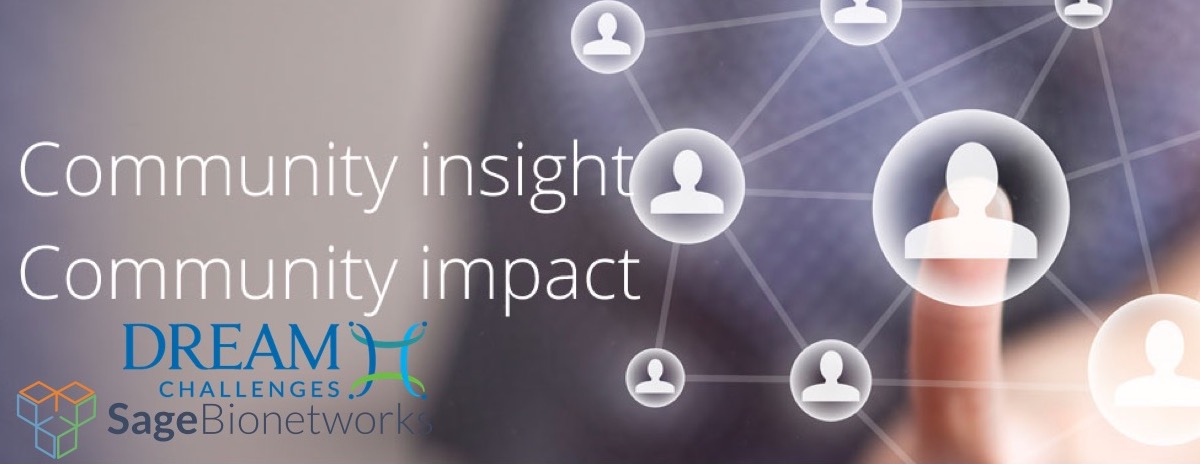
The DREAM Challenges are crowd-sourcing to solve complex biomedical research questions.
Together, we share a vision to enable individuals and groups to collaborate openly so that the 'wisdom of the crowd' provides the greatest impact on science and human health. Over sixty crowd-sourced DREAM Challenges have benchmarked informatic algorithms in biomedicine. DREAM has had over 30,000 cross-disciplinary participants from around the world that have volunteered as solvers. Over 105 academic journal publications have resulted from DREAM Challenges covering a range of disease areas.
Learn more about the DREAM process - Pose > Prepare > Engage > Evaluate > Share


